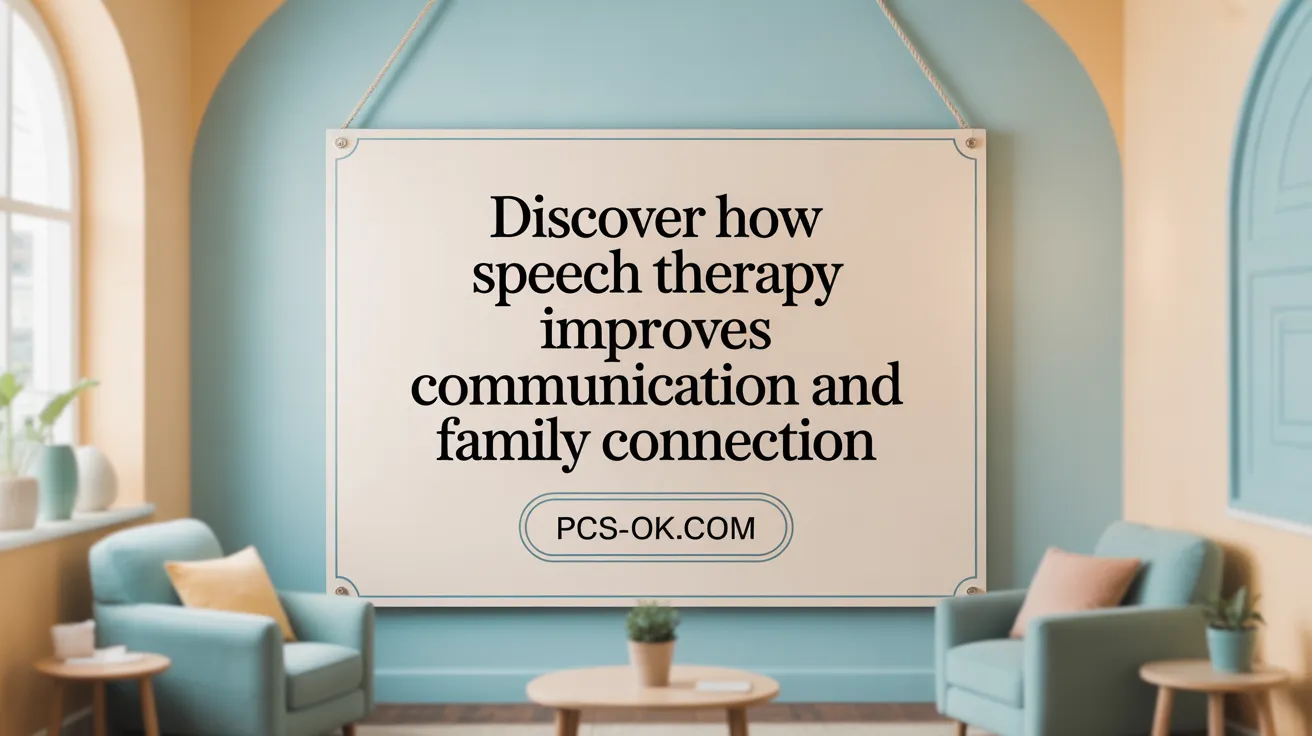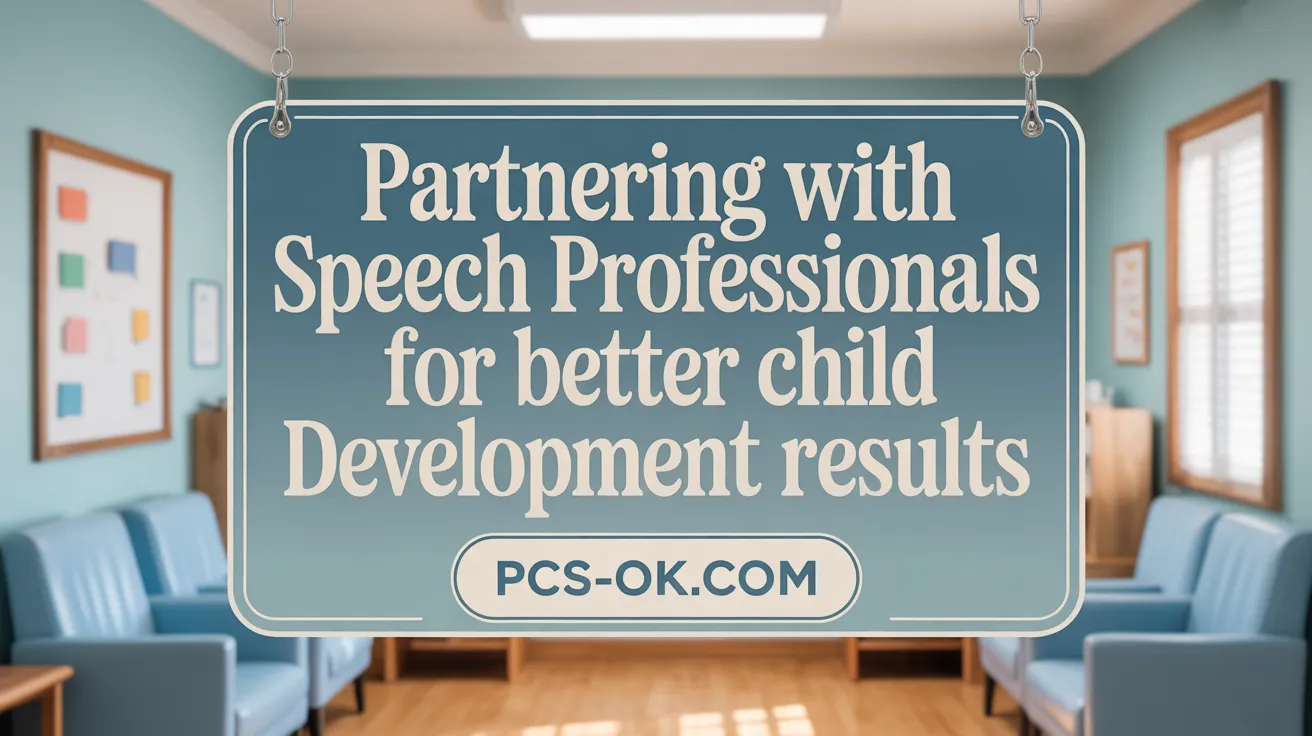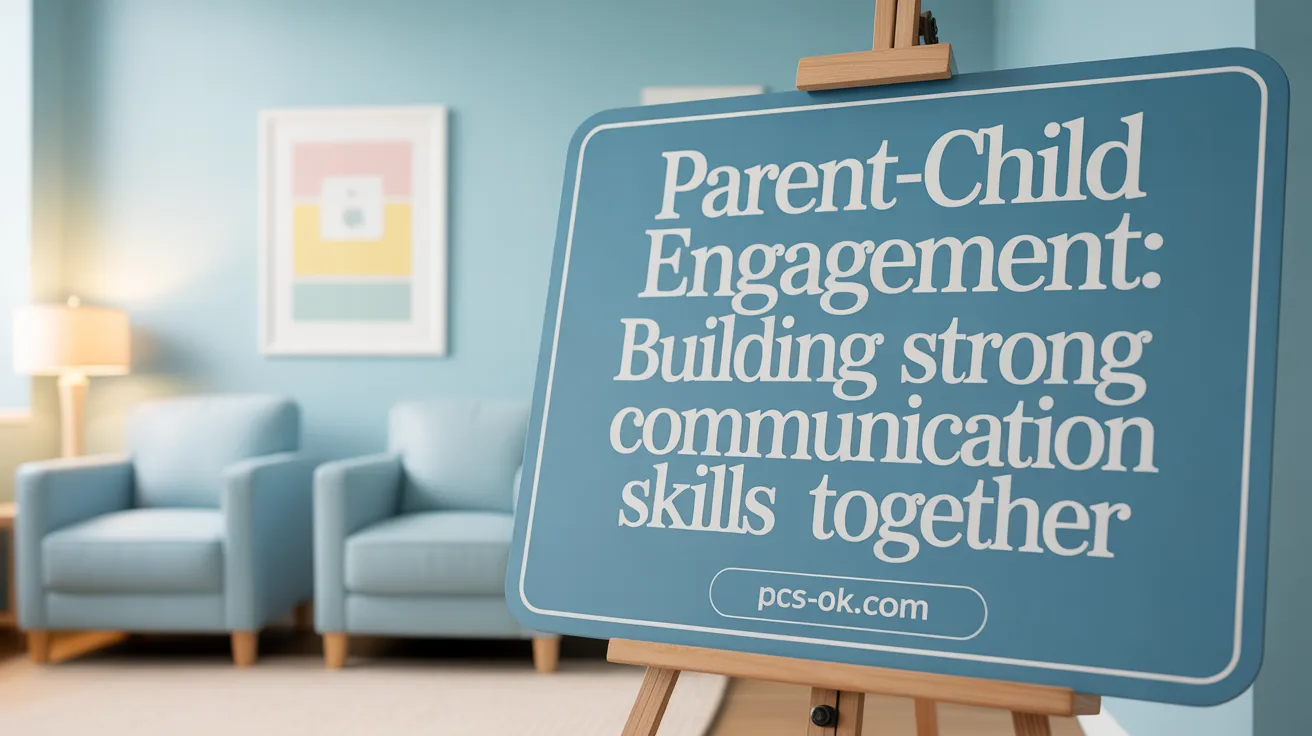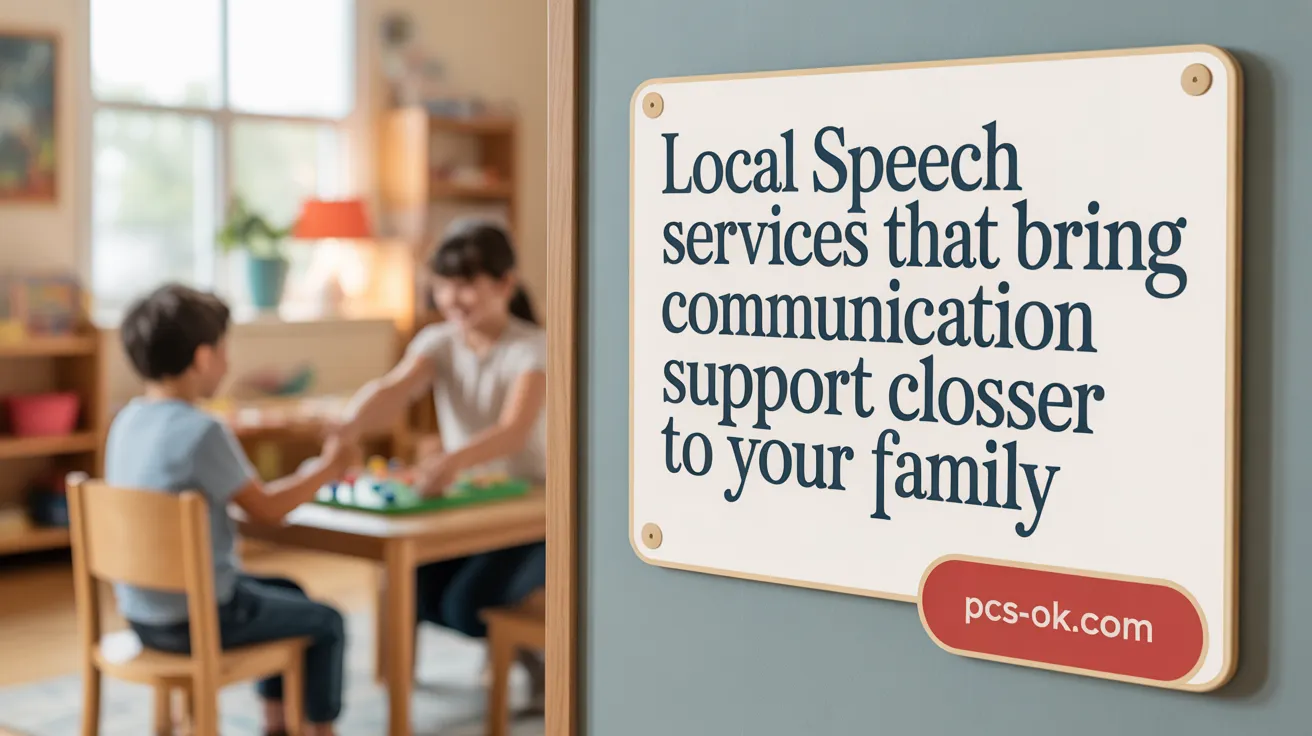How Families Benefit From Local Speech Services
Understanding the Impact of Accessible Speech Services
Local speech therapy services play a vital role in enhancing family health, well-being, and child development. By offering convenient, personalized, and family-centered care, these services empower families, strengthen communication skills, and foster positive developmental outcomes. This article explores the multifaceted benefits of local speech services, highlighting how collaboration, in-home therapy, and early intervention create environments where children and families thrive.
Enhancing Family Health and Well-being Through Speech Therapy
What are the benefits of speech therapy services for families’ health and well-being?
Speech therapy offers numerous advantages that positively impact family health and overall well-being. By improving communication abilities, these services help family members express their thoughts and emotions more effectively. This fosters stronger emotional bonds and understanding between parents, children, and caregivers.
Reduced frustration and social isolation are additional benefits. When children and adults can communicate clearly, misunderstandings decrease, leading to fewer conflicts and emotional distress. This supports a more harmonious family environment.
Mental health and cognitive improvements also play a significant role. Clear communication boosts self-esteem and confidence, encouraging greater independence. Speech therapy can additionally enhance mental wellness by promoting social participation and reducing feelings of exclusion.
Moreover, effective communication nurtures healthier family dynamics. It enhances emotional connections, facilitates problem-solving, and creates a supportive atmosphere. Overall, speech therapy contributes to a better quality of life by strengthening relationships, easing stress, and supporting mental health.
| Benefit | Impact | Additional Notes |
|---|---|---|
| Emotional connections | Strengthen bonds and understanding | Effective communication fosters closeness |
| Social participation | Reduced isolation; increased social interactions | Supports community and peer relationships |
| Mental health improvement | Increased confidence, reduced anxiety and frustration | Promotes self-esteem and emotional stability |
| Family dynamics | Better problem-solving and collaborative decision-making | Creates a harmonious and supportive environment |
| Cognitive functions | Improved memory, attention, and problem-solving skills | Enhances overall mental wellness |
Implementing speech therapy as part of family health routines can lead to lasting positive changes, enriching both individual and collective well-being.
The Positive Ripple Effects of Speech Therapy on Child Development and Family Life

How do speech therapy services positively impact family life and child development?
Speech therapy plays a crucial role in enhancing a child’s communication abilities, which directly influences their confidence, social skills, and academic performance. When children develop clearer speech and better understanding of language, they become more comfortable interacting with peers and adults, fostering friendships and social participation.
Family involvement is a vital aspect of successful therapy. Speech-language therapists (SLTs) often work closely with parents to reinforce strategies at home. This collaboration allows parents to integrate speech activities into daily routines, making therapy more natural and effective. It also empowers parents, building their confidence and understanding of their child’s needs.
Home-based therapy settings open opportunities for regular parent-child interaction. Such involvement benefits the child by encouraging consistent practice, which accelerates progress. Additionally, it creates a supportive environment where children feel safe and understood, promoting emotional resilience.
Early intervention is particularly impactful. Initiating speech and language therapy during the critical early years helps children meet developmental milestones more readily. It supports their long-term communication skills, reduces frustration, and promotes independence.
Importantly, speech therapy can ease family stress. When parents see their child making noticeable improvements, worries about future academic and social struggles diminish. The collaborative nature of therapy fosters a positive, harmonious family environment.
Overall, speech therapy not only enhances a child’s communication and social engagement but also strengthens family bonds. By reducing challenges and fostering confidence, therapy helps create a nurturing home atmosphere and supports lasting developmental success.
Advantages of In-home and Community-Based Speech Therapy for Families

What are the advantages of in-home and community-based speech therapy?
In-home and community-based speech therapy offer numerous benefits for families with children requiring communication support. One of the most prominent advantages is convenience, which significantly reduces the need for travel and helps families manage busy schedules more effectively. Families no longer need to spend valuable time and effort on commuting, making it easier to fit sessions into daily routines.
The familiarity of the home or community environment is especially beneficial for children. Being in a comfortable setting can decrease anxiety and stress, boosting the child’s confidence and willingness to participate actively. This comfort often leads to more genuine interactions, allowing therapists to better assess and tailor intervention strategies.
Active family participation is another important benefit. When therapy occurs in familiar surroundings, parents and caregivers can observe sessions directly, learn reinforcement techniques, and incorporate them into daily life. This strengthens the parent-therapist relationship and fosters a team approach to communication development.
Using everyday routines and objects during therapy sessions makes learning practical and meaningful. Activities involving household items like toys, mealtime, or playtime help children transfer skills to real-world situations more effectively, promoting lasting progress.
Furthermore, in-home therapy enhances attendance rates and reduces the risk of illness transmission. Because families can schedule sessions at convenient times, they are more likely to attend consistently. Also, therapy in a safe, familiar environment minimizes exposure to illnesses such as flu, COVID-19, and other contagious viruses, ensuring the child’s health and safety.
In summary, home and community-based speech therapy foster a personalized, engaging, and effective approach that supports better communication outcomes. It combines convenience, comfort, family involvement, and practical application, making it a valuable option for many families.
The Impact of Collaborative Practices Between Families and Speech Service Providers

How does collaboration between families and speech service providers influence therapy outcomes?
Working closely together, families and speech therapists create a more effective treatment environment. When families are involved in planning and actively practicing strategies at home, children tend to learn and generalize new skills more quickly. This cooperation helps make interventions more personalized, addressing each child’s specific needs and routines.
Coordinated efforts also involve multidisciplinary teamwork, where different professionals share information and observations. This shared documentation supports comprehensive assessments, which in turn lead to customized intervention plans that fit the child’s unique context.
Reducing family stress is another important benefit. When parents understand the therapy process and feel supported, they are more committed to the sessions and home activities. This higher level of engagement ensures consistent practice, boosting progress.
Furthermore, partnerships foster trust and communication, making families feel empowered and confident. A person-centered, team-based approach not only accelerates development but also enhances the child’s overall well-being and the long-term success of speech therapy.
The Vital Role of Parent-Child Interaction in Speech Therapy Success

What role do parent-child interactions play in enhancing speech therapy outcomes?
Parent-child interactions are fundamental in boosting the effectiveness of speech therapy. These interactions create abundant, meaningful practice opportunities in environments that are familiar and emotionally supportive for the child. When parents actively participate, they help reinforce speech and language skills learned during therapy sessions, turning everyday routines into natural learning moments.
Involving parents allows for customization of strategies that align with the child’s personality, responses, and daily routines. This tailored approach accelerates speech development and promotes the generalization of skills across different settings. Activities like shared reading, playful interactions, and targeted routines such as mealtime or playtime are incorporated to reinforce therapy goals, making learning engaging and practical.
Parent involvement fosters motivation, confidence, and emotional security, which are vital for a child’s development. When children feel secure and supported, they are more likely to engage actively in communication, taking risks and trying new words or sounds.
Furthermore, collaborative efforts between parents and speech-language therapists support neuroplasticity—the brain’s ability to reorganize itself—and resilience. This partnership helps adapt interventions to evolving needs, ensures consistency, and promotes sustained progress.
Ongoing parent training and involvement are crucial, as they enable parents to practice techniques regularly, troubleshoot challenges, and celebrate small successes. Ultimately, nurturing parent-child interactions forms a central pillar of effective speech therapy, empowering families and supporting long-term communication growth.
How Local Speech Services Make Family Engagement Convenient and Effective

How do local speech services support family involvement and engagement effectively and conveniently?
Local speech therapy services play a crucial role in making family involvement both practical and impactful. These services often emphasize a family-centered approach, where collaboration between speech-language therapists (SLTs) and families is central to the therapy process. This means families are active participants in setting goals, sharing insights, and integrating strategies into daily routines.
One effective way they do this is through flexible scheduling options, including telehealth. Teletherapy allows families to attend sessions from home, eliminating lengthy travel and fitting therapy into busy schedules more easily. This convenience encourages consistent attendance, which is vital for successful communication development.
Therapists also train parents and caregivers, providing resources and guidance to reinforce skills outside of formal sessions. They incorporate therapy exercises into everyday activities like mealtime, play, and routines, ensuring that learning is natural and relevant.
Moreover, services focus on building a partnership with families by offering regular feedback and support. This collaborative process helps families feel empowered, confident, and more engaged in their child’s progress.
Reducing logistical barriers is another significant aspect. By offering in-home services and flexible hours, local programs make it easier for families to remain involved without added stress or time commitments. This approach ensures that therapy is accessible, personalized, and consistent.
In summary, local speech services facilitate family participation through adaptive, family-centered practices, leveraging technology and flexible arrangements. These efforts foster ongoing engagement, making therapy both convenient and effective, ultimately leading to better communication outcomes for children.
Empowering Families Through Accessible Local Speech Services
Local speech therapy services offer comprehensive benefits that extend beyond individual speech development to positively transform family health, well-being, and dynamics. By providing convenient in-home and community-based options, fostering strong collaborative partnerships between families and therapists, and emphasizing parent-child interactions, these services create supportive environments that drive meaningful progress. Early intervention and flexible delivery methods like telehealth further enhance engagement and accessibility, ensuring families receive tailored care aligned with their unique needs. Ultimately, local speech services empower families to overcome communication challenges, build confidence, and nurture their children’s potential for lifelong success.
References
- Why More Families Are Choosing Telehealth for Speech …
- Collaboration between parents and SLTs produces optimal …
- What are the Top Benefits of Early Intervention Therapy for …
- Why Choose Home-Based Speech Therapy? Top Benefits …
- Why add Speech, Language, and Hearing Benefits?
- The Benefits of Pediatric Speech Therapy at Home
- The Benefits of In-Home Speech Therapy for Colorado Families
- The Benefits of Parent-Child Interaction in Speech and …
